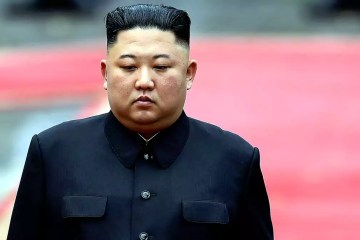Kathmandu remains eerily quiet one day after Prime Minister KP Sharma Oli’s resignation. Streets show rubble from riots, smoke rises from burned vehicles. Army patrols started Wednesday morning, searching cars and pedestrians. Several suspects detained for suspected looting and vandalism.

Security forces take firm stance against violence. Soldiers deployed at key sites and public areas to protect national assets and citizens. Army instructs people to stay indoors.
In national address, Army Chief General Ashok Raj Sigdel urges protesters to end demonstrations and join talks. “We must ease tough situations together,” he says. He stresses safeguarding national heritage, personal property, ordinary citizens, diplomatic missions, and public safety. Nepal Army extends condolences to families affected by Tuesday’s clashes.
Fires damaged Supreme Court, Parliament building, and several ministers’ and MPs’ residences during unrest.
Indian Prime Minister Narendra Modi voices concern over ongoing protests. He calls on Nepalis to maintain peace. “Neighbor’s stability, peace, and prosperity matter greatly to India,” Modi states.
Analysts worry Nepal’s political turmoil could impact South Asian countries. Long-term effects might hit regional economy, trade systems, and security.
Border trade with India faces disruptions. Supply chains risk breaking, harming bilateral commerce. Over 150 Indian companies in Nepal see uncertain futures. Foreign investment, mostly one-third from India, discourages new ventures.
Ambitious energy plans at risk. Projects aiming to import 10,000 megawatts of power from Nepal over next decade face uncertainty. Power transmission line construction might delay.
Nepal’s instability raises fears of growing Chinese influence in South Asia. This could strain India’s strategic balance. China’s Belt and Road Initiative projects threatened. Nepal joined Beijing’s program in 2017 for infrastructure development, rail and road links, financial aid, and regional trade opportunities. Such strategies for expanding Chinese sway in area might stall, per international relations experts.
Limited border movement creates barriers for supply systems with India, Bangladesh, and Bhutan.
Experts believe Nepal’s political unrest could seriously affect regional economy, trade, and security in long run, causing deep worry for neighbors.
Read more: Trump Denies Signing Epstein Birthday Message, Calls It Forgery Amid Court Battle
Once peaceful Himalayan nation, Nepal now faces shaky politics. Analysts see geopolitical and strategic impacts on region, especially India and China. Indian media reports early effects on neighbor’s economy and border trade. Large disruptions in goods flow possible.



